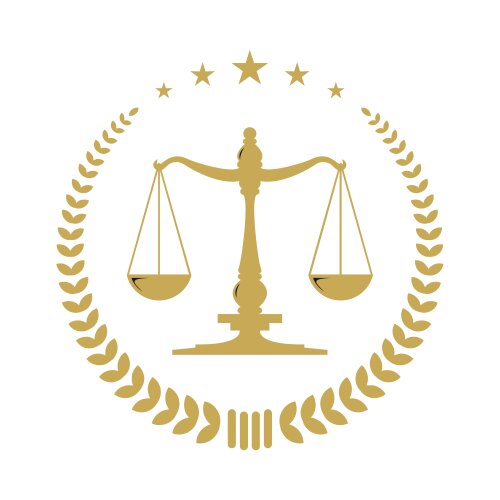Best Education Law Lawyers in Abbottabad
Share your needs with us, get contacted by law firms.
Free. Takes 2 min.
List of the best lawyers in Abbottabad, Pakistan
About Education Law in Abbottabad, Pakistan
Education Law in Abbottabad, Pakistan, is a crucial aspect of the legal system that governs the operations, policies, and standards of educational institutions. This area of law ensures that educational facilities operate within the regulatory frameworks set by the government, supporting the rights of students, educators, and administrators. Education Law encompasses issues like school admissions, teacher qualifications, student rights, school safety, special education, and more. In Abbottabad, as in the rest of Pakistan, education is primarily regulated by provincial laws, given the decentralization of education from federal to provincial jurisdiction as per the 18th Amendment to the Constitution of Pakistan.
Why You May Need a Lawyer
There are several situations in which individuals or institutions might seek legal assistance in the realm of Education Law. Common scenarios include disputes over school admissions, issues regarding the rights of students with disabilities, employment disputes involving teachers and school staff, cases of discrimination or harassment within educational settings, and challenges related to the accreditation and operation of educational institutions. Additionally, legal guidance might be necessary when navigating regulatory compliance for new or existing schools or dealing with allegations of academic misconduct.
Local Laws Overview
Education Law in Abbottabad, and more broadly in Khyber Pakhtunkhwa, is influenced by various local regulations and policies. Key aspects include ensuring compliance with the Khyber Pakhtunkhwa Education Act, which outlines standards for educational institutions. This includes guidelines on teacher-student ratios, facilities, curricula standards, and admissions processes. The law also provides for the establishment of school management committees and outlines the rights of students, including the right to free and compulsory education as mandated by the Pakistani Constitution. Understanding these local regulations is essential for both educators and learners to safeguard their rights and obligations.
Frequently Asked Questions
1. What is Education Law?
Education Law refers to the legal discipline that covers the laws and regulations governing the operation of educational institutions and the rights of students and educators.
2. What issues can Education Lawyers help with?
Education lawyers can help with issues such as student rights, special education needs, school discipline, discrimination, teacher contracts, and regulatory compliance for educational institutions.
3. Is there a legal requirement for school attendance in Abbottabad?
Yes, under the Constitution of Pakistan and provincial laws, there is an obligation for free and compulsory education for children, typically up to the age of 16.
4. How can parents address concerns about bullying in schools?
Parents can report bullying incidents to school authorities first. If the matter is not resolved, they may seek legal advice to explore further legal remedies available under the local education regulations.
5. What rights do students with disabilities have in Abbottabad schools?
Students with disabilities have the right to access inclusive education and reasonable accommodations as per local and national laws dedicated to protecting their rights in educational settings.
6. Can someone sue a school for not providing quality education?
While it depends on specific circumstances, legal action might be possible if there is a clear breach of statutory obligations or negligence that leads to harm.
7. What can educators do if they face unfair dismissal?
Educators can seek legal counsel to challenge wrongful termination, potentially through a civil lawsuit or labor tribunal, depending on the contract and the nature of the dismissal.
8. Is homeschooling allowed under Abbottabad’s education laws?
Homeschooling is generally permissible, but parents should ensure compliance with any provincial regulations regarding curriculum and educational standards.
9. How is school ownership and management regulated?
School ownership and management are regulated by provincial laws, requiring registration and adherence to set operational standards, often involving school management committees.
10. Are private schools subject to the same laws as public schools?
While private schools must adhere to specific provincial regulations, there may be differing compliance requirements concerning operational aspects and fees compared to public schools.
Additional Resources
For those seeking further information on Education Law, useful resources include the Khyber Pakhtunkhwa Department of Elementary and Secondary Education, the Pakistan Education and Research Network (PERN), and local bar associations in Abbottabad for legal referrals. Additionally, consulting legal professionals specializing in Education Law can provide tailored assistance.
Next Steps
If you require legal advice in Education Law, consider reaching out to a lawyer specializing in this field. Start by collecting all relevant documents and details about your issue and then seek consultations with legal professionals to understand your options. Utilizing local resources like bar associations can help identify qualified legal experts who can offer support and representation as needed.
Lawzana helps you find the best lawyers and law firms in Abbottabad through a curated and pre-screened list of qualified legal professionals. Our platform offers rankings and detailed profiles of attorneys and law firms, allowing you to compare based on practice areas, including Education Law, experience, and client feedback.
Each profile includes a description of the firm's areas of practice, client reviews, team members and partners, year of establishment, spoken languages, office locations, contact information, social media presence, and any published articles or resources. Most firms on our platform speak English and are experienced in both local and international legal matters.
Get a quote from top-rated law firms in Abbottabad, Pakistan — quickly, securely, and without unnecessary hassle.
Disclaimer:
The information provided on this page is for general informational purposes only and does not constitute legal advice. While we strive to ensure the accuracy and relevance of the content, legal information may change over time, and interpretations of the law can vary. You should always consult with a qualified legal professional for advice specific to your situation.
We disclaim all liability for actions taken or not taken based on the content of this page. If you believe any information is incorrect or outdated, please contact us, and we will review and update it where appropriate.








